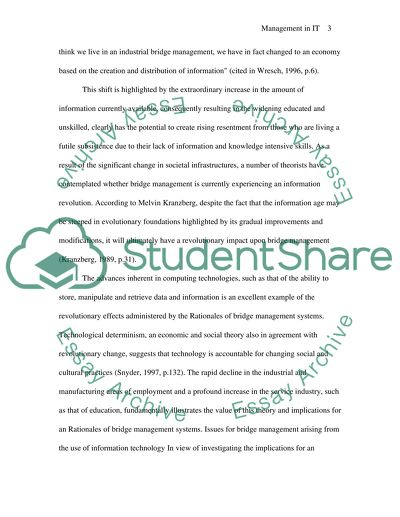Cite this document
(“Bridge Management Essay Example | Topics and Well Written Essays - 1500 words”, n.d.)
Retrieved from https://studentshare.org/technology/1521254-bridge-management
Retrieved from https://studentshare.org/technology/1521254-bridge-management
(Bridge Management Essay Example | Topics and Well Written Essays - 1500 Words)
https://studentshare.org/technology/1521254-bridge-management.
https://studentshare.org/technology/1521254-bridge-management.
“Bridge Management Essay Example | Topics and Well Written Essays - 1500 Words”, n.d. https://studentshare.org/technology/1521254-bridge-management.


